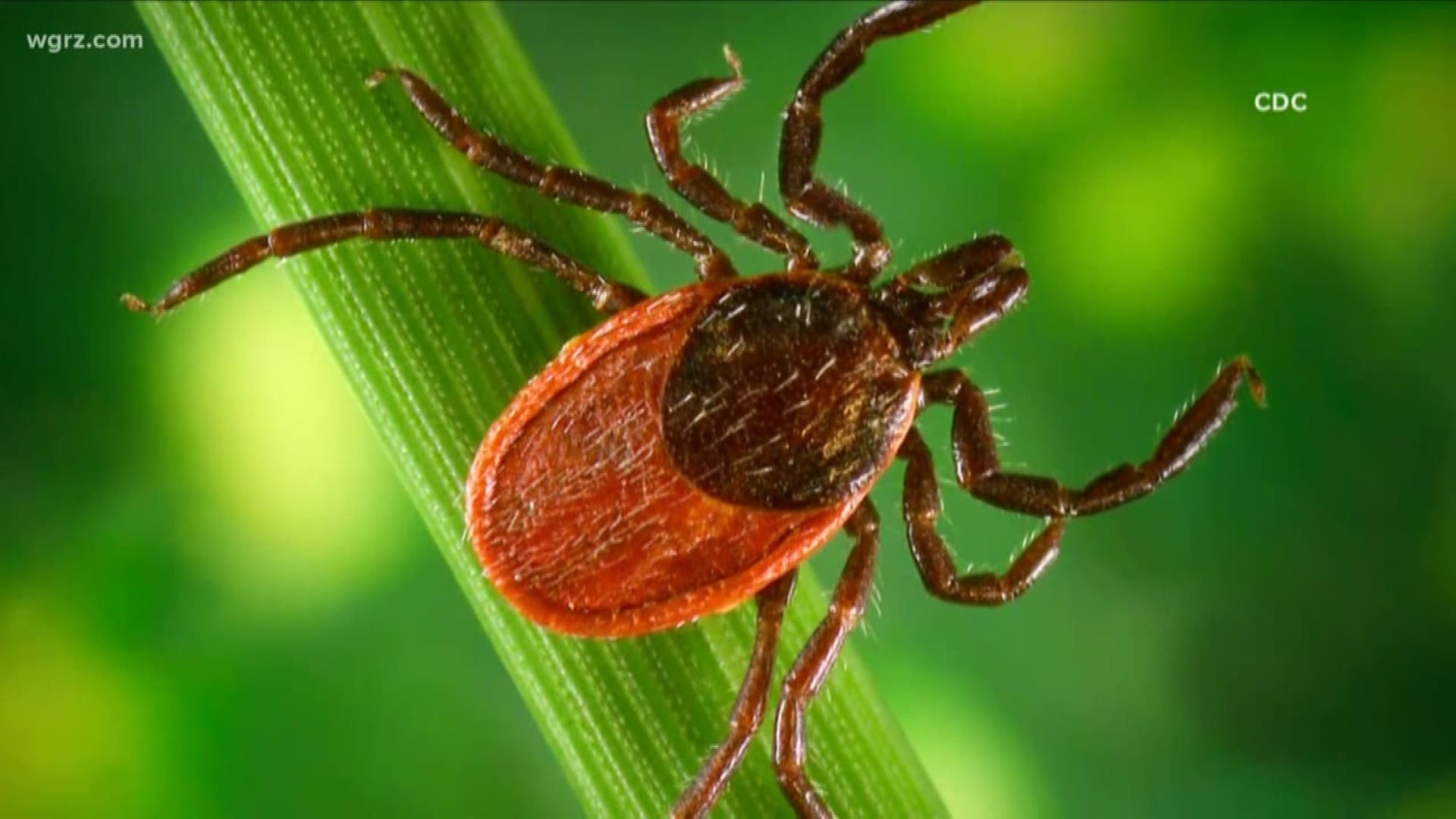ALBANY -- A new type of tick has been found in Westchester County, the state Health Department cautioned Tuesday.
The Haemaphysalis longicornis tick, commonly known as the “longhorned tick,” was recently discovered in multiple locations in the county, the health department said.
The findings led health officials to warn residents to take caution when they are outside, particularly in wooded areas.
"While the longhorned tick has transmitted disease to humans in other parts of the world, more research is needed to determine whether this can happen in the United States," the health department said.
"Regardless, New Yorkers should continue to take steps to protect themselves, their children and their pets against ticks and tickborne diseases that are present in New York state."
The new tick has been found recently in New Jersey and other states, and it was identified in New York by the health department in conjunction with researchers at Fordham University and the Lyme Disease Diagnostic Center of New York Medical College.
The health department said the tick can also harm crops and livestock.
So farmers should work with their veterinarians "to check their animals, particularly cattle, sheep and horses, for exposure to ticks and to ensure their parasite control plans are up to date and working."
The health department said if longhorned ticks are suspected, farmers should also contact the New York State Department of Agriculture and Markets Division of Animal Industry at 518-457-3502 or dai@agriculture.ny.gov.
“While we continue to learn more about the longhorned tick, it is evident that this species may possibly cause illness not only in humans, but also in livestock and our pets," said state Agriculture Commissioner Richard Ball.
"We encourage farmers to be vigilant and keep a watchful eye out for this tick to protect their animals and stay ahead of any potential problems for the livestock industry in New York State.”
The longhorned tick is not native to the U.S. and is commonly found in Australia, New Zealand and eastern Asia.
But state officials said they have been found recently in New Jersey, Virginia, West Virginia, North Carolina and Arkansas.
“Taking steps to protect yourself, your children and pets against ticks is the best way to prevent tick bites and tickborne diseases," said state Health Commissioner Howard Zucker said.
"We will continue to conduct surveillance and research on this new type of tick, but it is encouraging that the same steps that protect against deer ticks are also effective against the longhorned tick.”
Here's some safety tips from the health department:
• Wear long pants and long-sleeved shirts to protect against ticks other biting insects.
• Check for ticks often while outdoors and brush off any ticks before they attach.
• Perform a full body check multiple times during the day.
• Consider use of repellents containing DEET, picaridin or IR3535, following label instructions.
• If you have been bitten by a tick of any kind, contact your health care provider immediately if you develop a rash or flu-like symptoms.
For more information about Lyme disease and other tick-borne diseases, visit: https://www.health.ny.gov/diseases/communicable/lyme/.

